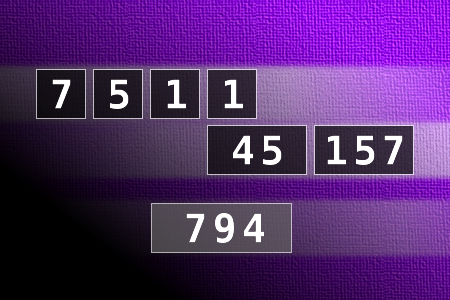Calculate the number 794
NUMBERMANIA: Calculate the number 794 using numbers [7, 5, 1, 1, 45, 157] and basic arithmetic operations (+, -, *, /). Each of the numbers can be used only once.Correct answers: 26
The first user who solved this task is Eugenio G. F. de Kereki.
#brainteasers #math #numbermania


